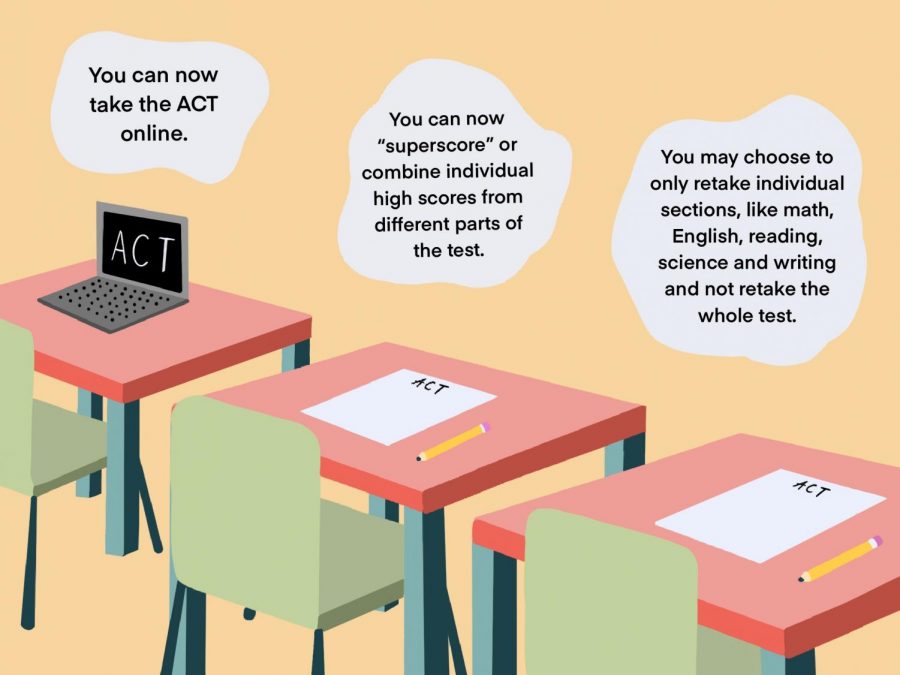The ACT recently announced three changes to their national exam, championing “more choices, a better experience, and greater confidence.” Superscoring, section retesting, and online testing are all options slated for implementation in September 2020.
WHAT DOES THIS MEAN?
By superscoring, students can add up multiple ACT tests and section retests, showing the highest possible composite score for college admission and scholarship opportunities.
Rather than restudying for all five subjects of the test (English, math, reading, writing, and science), students would have the option to retake one section instead of the entire test. This could be a welcome change for those who may have exceeded expectations in one subject, but not another.
For strings senior Hannah Xie, these new changes could offer more flexibility than the SAT.
“There would be more people who would receive a high score when they retake [the ACT], because they would only need to study for one section at a time,” Xie said.
Arguably the most anticipated change to the ACT is the option to take the exam online instead of using the traditional pencil and paper. While students are given a choice, one incentive the online version provides is faster results. Online results will be released just two days after the exam, providing more time for students to think about schools and scholarships.
As one of two major tests taken by students across the country, the ACT is one of the primary gateways to college, and it provides students with scholarship opportunities. Schools that offer scholarships for the ACT include Baylor University, Clemson University, Howard University, the University of Alabama, and, more locally, Palm Beach Atlantic University.
WHY DID ACT MAKE THIS CHANGE?
According to Niche, a website that showcases the national rankings of schools, the average ACT score at Dreyfoos is a 29, much higher than the 2019 national average of 20.8. However, the vast majority of students choose to take its competitor, College Board’s SAT.
“I’ve taken the SAT three times, including once over the summer,” dance junior Katelynn Carroll said. “I plan to use Khan Academy to study for the next one.”
But following these adjustments, many students have become interested in the ACT.
“What really intrigues me is the ability to retake a certain portion of the test,” communications freshman Jayantha Kantamneni said. “This keeps my preparation [for the test] efficient and limits the amount of procrastination.”
From 2012 to 2017, the ACT held the title of America’s most widely used college admission test. However, it was dethroned when nearly 2 million U.S. students in the Class of 2018 took the SAT exam compared to the ACT’s 1.91 million. Some suspect the changes to the ACT could be a reaction to the recent decline in numbers.
Underclassmen can look forward to the wide array of options available at their fingertips, from workbooks to online programs. In August 2019, PrepScholar compiled a list of the best ACT prep websites, from Varsity Tutors and Khan Academy to SparkNotes. While most are free and some are more expensive, they provide educational content to suit everyone’s needs.
As September 2020 approaches, the ACT prepares to implement these changes in the test. Online testing, superscoring, and section retesting are all possible in the near future.

























































![[BRIEF] The Muse recognized as NSPA Online Pacemaker Finalist](https://www.themuseatdreyfoos.com/wp-content/uploads/2025/03/IMG_2942.jpeg)
